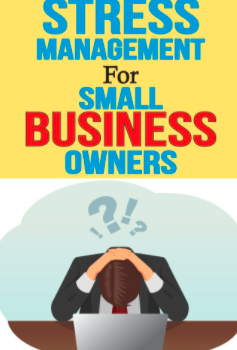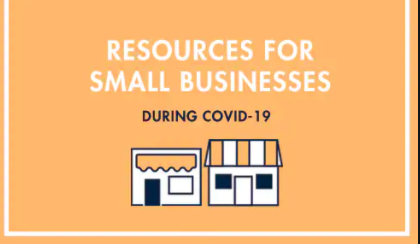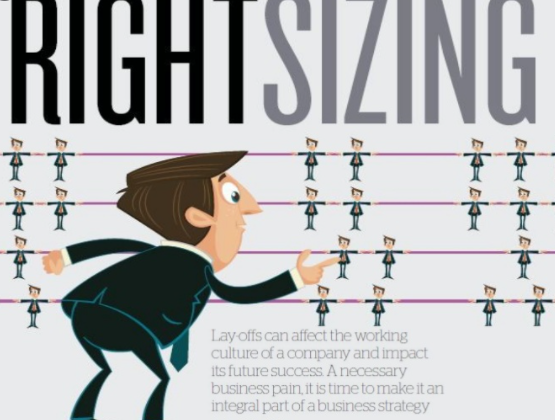
By James Pruitt, Senior Staff Writer
- Learn the Practice of Mindfulness:
Mindfulness is a state of awareness. Through mindfulness, we focus on the task at hand. Regardless of how simple the task, practitioners absorb themselves into every detail. Whether cleaning, preparing food, listening to music, or simply being, a mindful person lets go and concentrates on the moment
Running a small business may keep an owner in a constant state of distraction. Small business owners are inevitably busy multitaskers. However, in our routine we may carve out moments to melt into our surroundings and concentrate on the now. Hence, our down-time can become our time to relax and de-stress, rather than ruminate on what we cannot control.
- Meditate:
Related to mindfulness is meditation. Time and place are the main distinctions. Business owners can set aside time each day for simple meditation. Mindfulness can be practiced anywhere.
Meditation can involve a methodology unique to the practitioner. Some write their feelings and thoughts on paper before the session. Afterward, many practitioners feel secure and tranquil to concentrate on emptying their thoughts. After the act of writing, the task of mentally working through burdensome responsibilities has already been done. We strongly recommend checking out The David Lynch Foundation Meditation programs for Veterans. There are also other excellent programs.
- Practice Gratitude:
Always stay mindful of the positives in life. Whether great people, a fulfilling career path, or whatever blessings may grace you, the practice of gratitude adorns every setback with a silver lining. Gratitude helps maintain perspective, reminding the practitioner that better times loom ahead. Also, recognizing the positive is known to reduce stress and anxiety.
Many people keep gratitude journals and write down a certain number of things they are thankful for every night. Others write down their blessings and post them in a place where they will see them each day. We should refresh our sense of gratitude regularly. Gratitude gives us hope and perspective for the challenges facing us.
- Use your Support System:
The pandemic has disrupted everyone’s personal interactions. Fortunately, nothing can take away our strongest supports.
Networking with peers helps many business owners. Other small business owners and associates may provide a source of meaningful interaction. Shared experiences can provide bonding. Furthermore, peer groups can provide opportunities to exchange information. The resulting sense of meaning can help anyone who must plow through adversity.
Also, never forget friends and family. Despite the isolation of the pandemic, this generation has online resources to help remain connected. Finally, always practice gratitude for those who support you every day.
- Relinquish Control when Necessary:
Stress tends to burden the most responsible people. Often, we feel that only we can do everything right, and achieve perfection according to our standards. Unfortunately, no one can attain perfection. Circumstances can foil the most well-laid plans, and we cannot always do a thing about it. The Pandemic has certainly made this clear and that so much is out of our control.
Stay aware of priorities. Successful business owners recognize what they can and must control. Sometimes, the winds of change shift, and carry some of your goals with them. Proprietors should have the flexibility to adapt when necessary.
- Delegate:
The need for control can overwhelm the most well-adjusted business proprietor. There is one good strategy to reduce the pressure of responsibility: delegate.
Business owners can exercise self-awareness by recognizing those tasks they may not enjoy or do well. Making a list may provide insight into those processes we can best assign to someone else. Consider who on your team may have a different skill base. Also consider routes for contracting out the most dread-inducing tasks. Thusly are built the most efficient organizations.
- Remember You are Not Alone:
Innumerable strategies may alleviate stress during these difficult times. The pandemic is nothing if not unifying. We must all bear some of the same burdens for slogging through these difficult times. While in the end each of us bears different types of burdens, in the end self-care and kindness to ourselves will help us survive.
VAMBOA, the Veterans and Military Business Owners Association hopes that this article has been helpful. We work hard to bring you important, positive, helpful and timely information and are the “go to” online venue for Veteran and Military Business Owners. VAMBOA is a non-profit trade association. We do not charge members any dues or fees and members can also use our seal on their collateral and website. If you are not yet a member, you can register here: https://vamboa.org/member-registration/
We also invite you to check us out on social media too.
Facebook: https://www.facebook.com/vamboa
Twitter: https://twitter.com/VAMBOA











